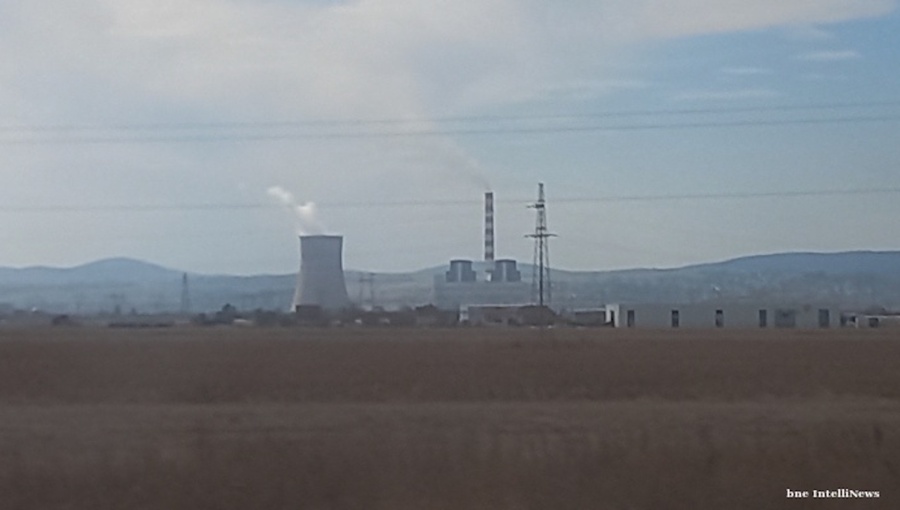Western Balkans power sector risks “complete meltdown” warns think-tank

The power sector in the Western Balkans is on the brink of collapse, a report from the Centre for European Policy Studies (CEPS) has warned, citing outdated infrastructure and environmental concerns as key factors contributing to the crisis.
"The most acute and imminent risk in that region is the complete meltdown of the power sector," said a CEPS policy brief.
The think-tank further warns that a failure by the West to step in could force governments in the region to look to Russia or China to upgrade its energy infrastructure.
Non-compliance
The policy brief pointed out that as of 2024 many lignite power plants in the region are non-compliant with the EU Large Combustion Plant Directive, which regulates emissions, including sulphur dioxide, nitrogen oxides, and dust. This non-compliance not only poses environmental risks but also threatens energy security and economic stability in the region.
This environmental legislation governs the permissible levels of sulphur dioxide (SO2), nitrogen oxides (NOx), and dust emissions from operational thermal power plants. Certain lignite mines have reached depletion, while others have faced flooding, leading to a decline in the quality of lignite used, which falls below the optimal standards for these plants. Moreover, inadequate funding and electricity price regulations have constrained maintenance activities at the plants.
As a result, power plants are operating below their intended capacity, experiencing rising technical malfunctions, occasional blackouts in certain regions, and heightened political tensions regarding energy transit. This situation has led to the disconnection of energy-intensive industries from the power grid, exacerbating local unemployment and reducing productivity. Moreover, uncertainties in regulations concerning non-compliant power plants, coupled with the high costs and complexities associated with desulphurisation, have discouraged operators of retrofitted plants from investing in desulphurisation add-ons.
"There is little to no scope for investments into plants more than 40 years old and approaching the end of their service life, which is the case for almost all of them," the report stated.
"Even if this were theoretically possible, retrofitting would actually increase CO2 emissions. The situation will only worsen the oldest and least efficient large power plants are gradually disconnected from the grid or physically collapse.”
Approximately two-thirds of the electricity in the region is generated by lignite, with most power plants operating for over four decades. This reliance on lignite has led to a carbon intensity three times higher than that of the EU, posing a severe threat to the environment and public health. (Albania is the exception as almost all of its electricity is produced from hydropower.)
The contrast for the carbon footprint per unit of GDP was even starker; the figure in the Western Balkans was 10 times higher than that of the EU27 in 2019. This disparity is primarily attributed to the aging infrastructure of power plants and the diminishing quality of domestic lignite, CEPS’ report said. Moreover, methane emissions from lignite mines and waste landfills further exacerbate the environmental impact, adding to the already concerning situation.
Geopolitical struggle
The region has for years been at the centre of a geopolitical struggle for influence with powers including China, Russia, Turkey, and the United Arab Emirates (UAE), vying for influence with the EU and US in the region through investments in energy infrastructure.
Over the last 15 years, there has been a consistent rise in foreign direct investment, particularly in areas concerning trade and energy security, from non-EU nations, says the report. China, through its Belt and Road Initiative, is primarily directing its investments towards infrastructure, mining, and energy sector collaborations. Russian investments strategically target the energy sector in Serbia and Bosnia & Herzegovina. Turkey's involvement is predominantly in infrastructure and banking, while the UAE focuses on real estate ventures.
"Corrosive capital investments could have a further negative impact on the rule of law and the development of democracy in the region," the report cautioned.
Christian Egenhofer, research associate at CEPS, warned on February 23 that China or Russia will step in to help countries in the region to address the energy sector crisis without Western action.
“Unless there’s an EU or Western solution, with EU and Western technology, and EU and Western money, the void will inevitably be filled by China and Russia. This would mean higher dependency on Russian gas and lock-in as well as a greater risk of supply disruptions,” he said.
To address the looming crisis, the CEPS proposed integrating the Western Balkans fully into the EU Emissions Trading System (ETS), with temporary free allocation. This, the report suggests, could facilitate the phase-out of coal, introduce low-carbon technologies, and mitigate the influence of 'corrosive capital’.
The proposal aligns with efforts to modernise the region's power sector and transition towards renewable energy sources while ensuring economic stability and environmental sustainability.


Follow us online